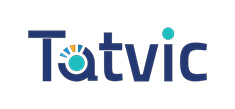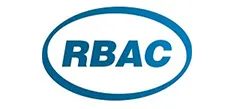
Firms in Singapore address their shareholders with the greatest equality and fairness. Being a shareholder grants you some privileges, but also it entails certain responsibilities. If you want to know any legal aspect about shareholders or corporate firms, the IMC is always there to serve you.
IMC has a workforce of corporate financial consultants who offer the customer unrivaled corporate financial services. They collaborate with the firms to secure the necessary finances. However, this article will cover some of your responsibilities as a shareholder in a Singapore firm.
Your principal responsibility as a shareholder of a Singapore firm is to pay the corporation the whole amount agreed upon in consideration for the shares issued to you. The specific terms and means of payment will vary based on the shares you purchased.
For instance, if you purchase shares through a securities brokerage business, you should pay according to the contract’s provisions between you and the securities brokerage firm. In addition, relevant payment conditions for non-listed company shares will be included in the shareholders’ agreement.
A company’s issue of new shares must be approved by its shareholders. As a result, you must analyze the company’s justification for doing so and whether voting on behalf of it will be in the best interests.
For instance, you must be aware that issuing new shares to just one subscriber could result in the suspension of shareholding. It may be disadvantageous to yourself and to all of the firm’s minority shareholders.
Shareholders must vote either for or against the contract of the company’s assets if they are of considerable worth.
For listed companies: Any asset sale requires shareholder approval:
For non-listed companies: Shareholder permission is only necessary by law if the firm sells all of its assets or operations. However, the company’s policy may also require shareholder approval for asset transactions over a particular amount.
Suppose the business decides to sell a specifically strategic asset. In that case, shareholders should exercise caution in deciding if to vote in support of the sale or not. This is because such a sale may significantly influence the company’s net assets, profitability, and so on.
If you have any doubts regarding the voting rights of the shareholders of Singapore firms, you can consult IMC for better assistance. Also, they collaborate with share market authorities to ensure that the company’s shares comply with securities market legislation when they are offered for public sale.
This article was a quick overview of the role and responsibilities of a corporate shareholder in a Singapore corporation. However, it should be remembered that not all businesses are the same. Some may have modified their standards by writing customized articles. As a result, the company’s articles must be evaluated before seeking shareholder approval. Therefore, it is preferable to accept a reasonable suggestion from the finest source.
IMC might be your greatest bet for top-tier consulting. IMC works directly with financial consultants, and initial public offering (IPO) concerns. Also, it assists the firm in issuing bonus shares, right shares, and the issuance of equity and debt securities.


We appreciate your interest in IMC and are eager to address your needs.
To ensure we address your needs accurately and promptly, please fill out this form. This will help us in identifying and connecting you with the appropriate team of experts in our organization.
We take pride in our responsiveness and aim to get back to you within a span of 1-2 business days. Your journey towards solutions starts here.
Companies we have worked with

















© 2025 IMC Group. All Rights Reserved.
© 2024 IMC Group. All Rights Reserved.
© 2024 IMC Group. All Rights Reserved.
Your Partner in
Growth
175+
Countries
17,500+
Professionals
525+
Locations
2350+
Global Partners
Companies we have worked with















Speak To Our Experts
Speak To Our Experts















To provide the best experiences, we use technologies like cookies to store and/or access device information. Consenting to these technologies will allow us to process data such as browsing behavior or unique IDs on this site. Not consenting or withdrawing consent may adversely affect certain features and functions.